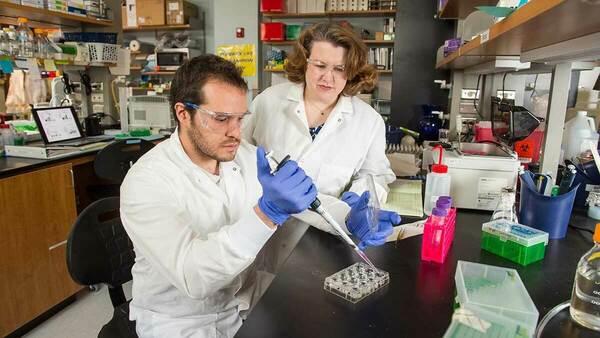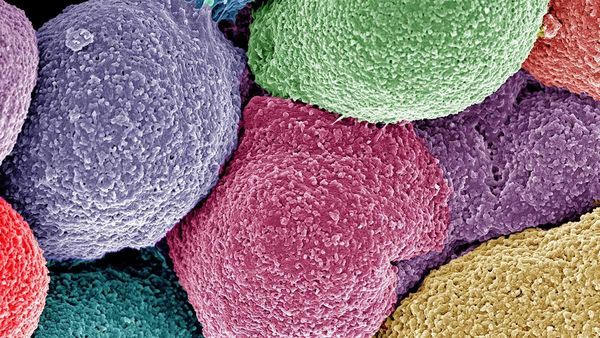
For the past six years, the Indianapolis-based Walther Cancer Foundation has funded research at the University of Notre Dame’s Harper Cancer Research Institute that has led to important discoveries in the early detection of and novel treatments for cancer.
To date, the foundation has provided nearly $9.5 million to support research at the institute to explore bioanalytical approaches for molecular detection of cancer in tissues; evaluate tumor development, progression and metastasis; and use multidimensional imaging to better understand the structure of cancer cells.
Now, in an effort to help extend and expand the Harper Institute’s research programs, the Walther Foundation has made a $3.5 million matching-fund gift that it hopes will inspire those with a similar passion to support novel, multidisciplinary approaches to cancer research.
 Sharon Stack
Sharon Stack
“The Walther Foundation has been a vital partner and supporter of our work at the institute since our inception,” said Sharon Stack, Kleiderer-Pezold Professor of Biochemistry and the Ann F. Dunne and Elizabeth M. Riley Director of the Harper Cancer Research Institute. “This gift not only represents an endorsement of the institute’s work, but also provides further evidence of the Walther Foundation’s broad-based commitment to support novel approaches to cancer research.”
“The most recent commitment by the Walther Cancer Foundation provides continued funding to the Harper Cancer Research Institute, reflecting our belief in the interdisciplinary approach to cancer research at Harper,” said foundation president and CEO Thomas W. Grein. “This was on full display via poster presentations at a recent Harper Research Day. We saw teams of researchers which could include representatives from the Departments of Biological Sciences, Chemistry, Biochemistry, Chemical and Biomedical Engineering, Mechanical Engineering, Electrical Engineering, and Biomedical Informatics, to name a few. Collaborative research is real at Harper.”
The Walther Cancer Foundation is dedicated to accelerating research to develop effective treatments for cancer as well as supporting patients with cancer and their families. Since its founding, it has invested almost $150 million to support and promote interdisciplinary and inter-institutional cancer research, ranging from basic and clinical research and behavioral studies to palliative care and end-of life support to patients and their families.
“We are exceedingly grateful to the Walther Cancer Foundation for supporting the Harper Institute’s multidisciplinary approach to cancer research and for encouraging others to join this noble effort,” said Notre Dame Provost Thomas Burish. “We share the foundation’s commitment to developing innovative, collaborative solutions to address this complex family of diseases and their impact on patients and their families.”
 Ovarian Cancer Cells
Ovarian Cancer Cells
Stack said grant funds will be used to sustain and expand collaborative research programs at the institute, such as the Cancer Cure Ventures program and the Interdisciplinary Interface Training Program for graduate students and postdoctoral fellows.
With more than 70 faculty scientists from across the University who teach and conduct research, the Harper Cancer Research Institute focuses on novel, multidisciplinary approaches to detect and treat cancer in its early stages.
The Mike and Josie Harper Cancer Research Institute is a novel collaboration between the University of Notre Dame and the Indiana University School of Medicine-South Bend. Collaboration is a foundational principle of the institute, which welcomes investigators from all colleges within Notre Dame and Indiana University seeking to address cancer-specific problems.
Originally published by at news.nd.edu on September 17, 2018.